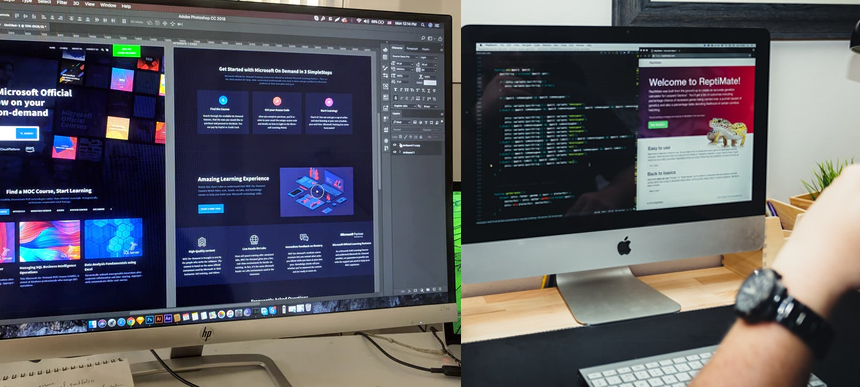According to a recent survey conducted by Investors in People, more than 60% of British adults are unhappy in their current jobs.
https://www.independent.co.uk/news/business/news/uk-workers-new-job-satisfaction-investors-people-a9272191.html
What happened to them that led them there at all?
After a dreaded interview, it must be an incredibly great feeling to be offered a job.
However, you must make sure that you do not let pride get the better of you, as so many job candidates do.
You should think carefully before accepting the job offer, as the company, market, and role may not be the perfect fit for you.
The truth is, making the employer look for someone better suited to the job in question would be far more troublesome than accepting an unsuitable job.
Do your research before making a snap decision about a new job or company!
1. Company Culture

A company’s culture is determined by its values, norms, internal systems, symbols, language, assumptions, beliefs, and habits.
Before you accept a job offer, your ability to fit into the team, company, and office is also crucial.
It is a good thing that you can find all the resources you need on the internet to aid you in your culture search, where you should investigate the company website, social media platforms, mission statement, and previous projects.
The interview may be the best place for you to find answers if the internet isn’t helpful…
• What would you consider to be your company’s culture?
• What are the ways in which everyone contributes to the company mission?
• Where do you see the company in five years?
Interviewers don’t just want to know that you’re knowledgeable, they want you to ask them questions to further their understanding of the business.
If you do your research online, you will be able to intuit the culture without being able to explain it fully.
How do you feel about this? How would you feel about that? Could it be what you’re looking for right now?
Put yourself in the position of considering your own values, beliefs, and personality.
2. The People

When you are recruiting, you are interacting with people from a variety of cultures and environments.
While your interviewer is assessing you, you should be assessing them (especially if they are going to be your boss).
Does it seem as though they are happy? How supportive will they be? How well would you get along?
Observe your body language and conversation and follow your gut instinct.
The reviews on websites like Glassdoor provide valuable insight into the culture of a company, as well as its employees.
In the reviews, employees discuss their experiences concerning benefits, management, colleagues, culture, and workload with current or previous coworkers.
It is also possible to read interview reviews written by previous job-seekers, so you can see what you could be in for!
A company you’re not sure that you’ll fit in may not be the right one for you if you don’t feel that you will have a reliable support network on a professional level (and possibly a personal one).
3. Ethics

Do you ever consider the ethical ramifications of applying for a job before taking it?
A company’s ethical standards may differ significantly from ours, as opposed to those of our own company. For example, those who are opposed to animal testing probably won’t work at a cosmetic company that conducts animal tests.
Our values are less evidently opposed by other companies.
Because of this, it’s important to thoroughly understand a company’s mission, what it does, and who they work with.
Obviously, you’ll feel compelled to leave if you work at a company that offends your morals or makes you feel low on esteem,
4. Your Job Profile

“Do I really understand the role?” ask yourself.”
Do your best to find out if you don’t know!
You need to read through the job spec again to garner as much information as you can. The interviewer should subtly ask or imply any missing information.
• What is the job title you have agreed upon?
• What are the day-to-day responsibilities of the position?
• Are you expected to perform any additional tasks?
You can learn about some of these things in conversation, but to learn more about aspects of the role that weren’t advertised, you may have to dig deeper.
You should assess whether the role is truly right for you following the receipt of all the necessary information.
You don’t have to give up your personal life to find a job that fulfills you, but you shouldn’t be bored every day either.
Further investigation can also be carried out via sites such as Glassdoor – do employees complain about their work-life balance?
5. Expectations

The hiring manager is expected to have some sort of idea of what a new employee should be capable of before he or she hires them (this is why hiring is taking place in the first place).
This expectation needs to be clearly defined.
You should always ask blunt questions and pay attention to their body language and tone of voice when responding.
• Is there a way to measure my performance?
• In the next 12 months, what are you expecting from me?
• What makes you decide to hire for an {Insert Position}?
As much as you ask questions, it’s also imperative that you pay attention to the interviewer’s body language when discussing workload.
The last thing you want is to be assigned an unrealistic workload or an unreachable target on the first day of work.
6. Opportunity
Assuming the right job offers are available before accepting the job offer is advisable for anyone seeking career advancement.
You’ll have a chance to explore career opportunities during the interview. During your interview, be open and confident…
• The culture is competitive, isn’t it?
• Who was my predecessor?
• What should I be doing in five years?
You never know if progression will matter to you in the future, so you might as well see what opportunities are available!
7. Training and Development

If you’re eager to progress, you should also learn more about the company’s training programs.
There are some companies that even reimburse tuition fees for relevant higher education courses. If you are looking to develop yourself, this is an amazing opportunity.
Bringing up training is another great topic during an interview; it shows you’re interested in learning and growing with the company.
8. Employee Benefits.
In the bigger picture, employee benefits are just as important as salary, especially subsidies.
Pensions, health care, and holiday entitlements are certainly more important.
If you ask about employee benefits during your interview, you may come across as more interested in the perks than in the offered position.
Take a look at the company’s Glassdoor profile or visit the company’s website for more information
9. The commute

Job satisfaction can be greatly impacted by small things.
One of the most underrated aspects of daily life is the commute when they accept a job offer.
You can drastically improve your lifestyle even with a two-hour (one-way) trip.
• You’ll have to rise earlier.
• We’ll see you in the evening.
• It is tiring to travel.
• There is a cost associated with travel!
• Transport and traffic problems could arise.
Don’t just disregard your commute because it seems trivial because it could change your life quite literally!
10. The Stability

Take the time to look at the company’s recent hiring activities and recent success to assess the company’s abilities to impress with their past work or current profits. How has the company fared during this hard economic time? You have a good shot at getting a job that is relatively stable. Unless you know what you’re doing, you could end up in a hazardous environment and lose your job within a year.
11. Does the ‘Job’ offer Work-Life balance?

It is a well-known saying that “What you commit to is all you can do”. Below are some questions that you should honestly answer after looking at the image:
You probably need to bring balance to your work-life if you answered ‘No’ to all the questions above.
Think about whether you will be able to maintain a balance between your work life and personal life when you are looking for a job in the future.
A person who doesn’t have time to enjoy themselves with family or friends is usually regarded as less efficient than those who do.
In case you decide to work for an organization, check to see if they have flexible work hours (this allows you to arrange your work schedule in a convenient way). Employees are provided with a Flexi-work time facility so they can manage their own schedules and work around their body clocks.
Your role may also entail working a certain number of days a week depending on your organization. If your employer offers two-day weekends, you can manage your personal life better and not have to take so many leave days during the week.
12. Your Gut

Lastly, listen to your gut after you’ve weighed all the important factors. You’ll know a house is for you when you walk in. The same applies here: if you leave an interview feeling like everything is on track (or off track), pay attention to that feeling.
Summary
It is evident that there are a lot of things to take into consideration before you say yes to your job.
There are a number of factors that are genuinely important in your quest for complete job satisfaction, some more important than others.
Don’t be afraid to trust your instincts. If something seems out of place, try to figure out why.
